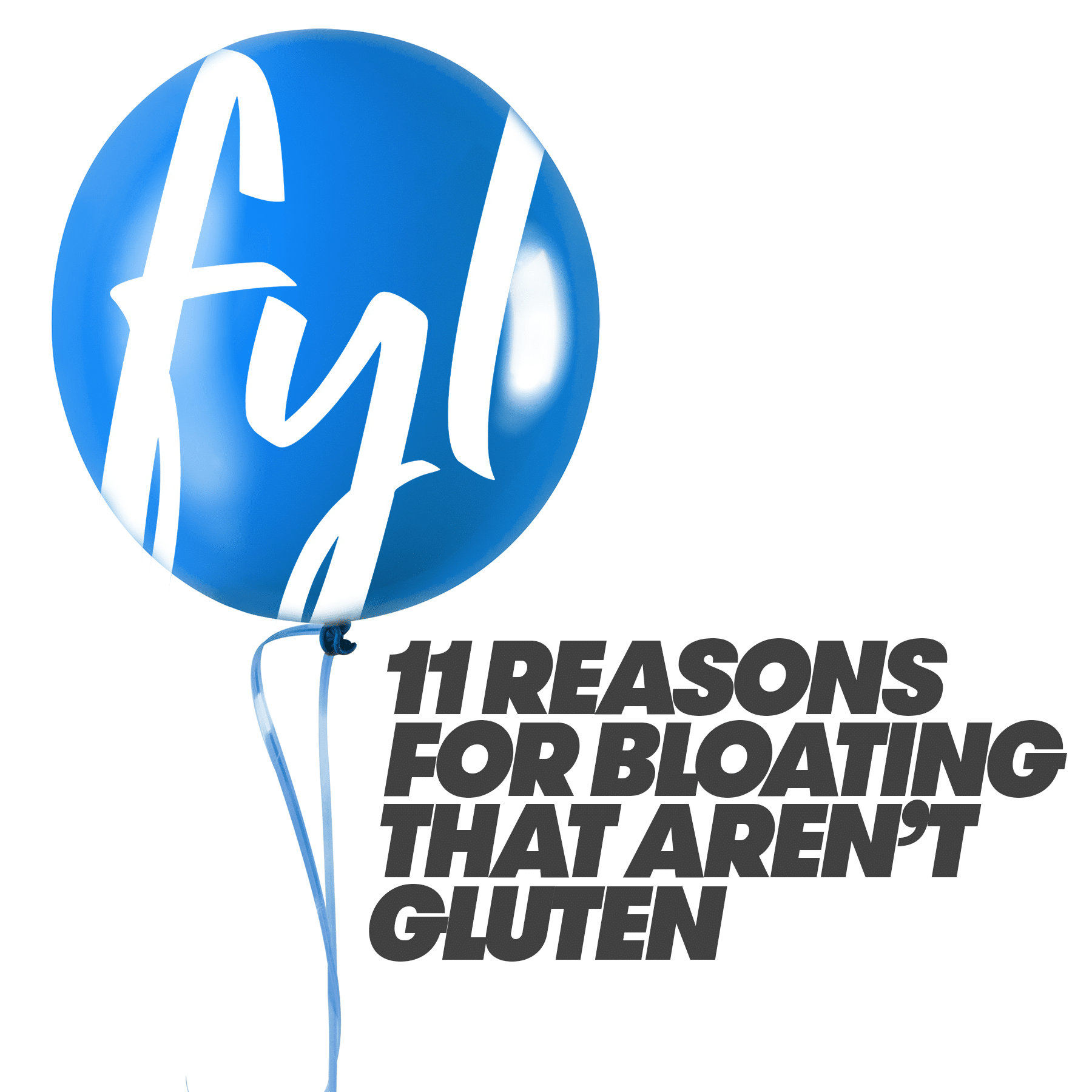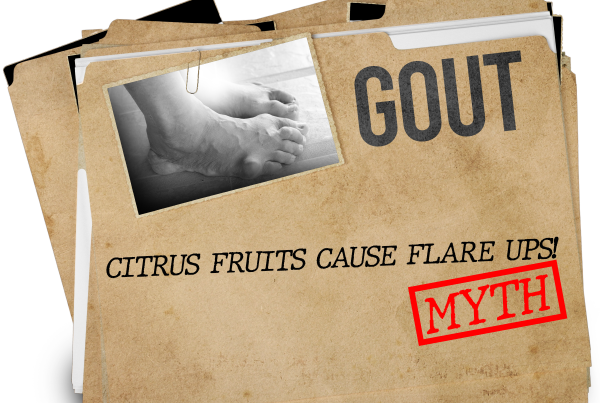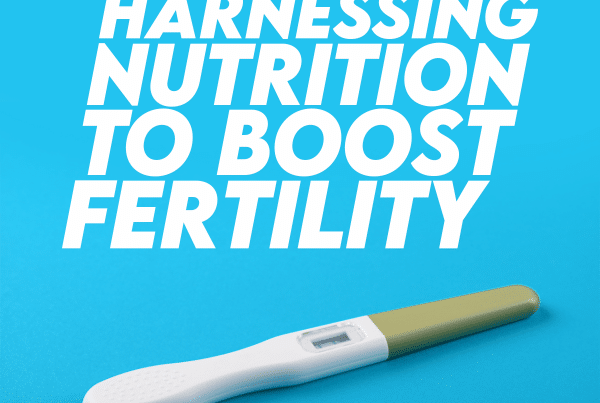Gluten (and wheat) are almost always demonised as the cause of unwanted bloating and gut symptoms, and this is simply not always the case. It is important to understand the difference between conditions that require a strict gluten-free diet, and those which may or may not be improved by omitting them. As more and more people jump on the “gluten-free bandwagon” to improve their symptoms of bloating and gut pain, the real question lies in the cause. Is it Coeliac Disease, Gluten Sensitivity or something else entirely?
Our dietitians have put together a list of 11 reasons that you may be bloating, that aren’t the wheat or gluten you consumed today. But first, let’s talk about a few instances that wheat and gluten ARE to blame.
Coeliac Disease
If you’ve been diagnosed with Coeliac Disease, your bloating is DEFINITELY due to ingesting gluten and you must avoid it like the plague going forward. Coeliac Disease is an autoimmune condition in which the lining of the small intestine becomes damaged when exposed to the protein gluten.
Damage to the small intestine can prevent nutrients from being absorbed adequately and can result in nutrient deficiencies, as well as cause unwanted side effects such as fatigue, bloating, pain, nausea, weight loss, bowel changes and delayed growth in children.
It is crucial that individuals diagnosed with Coeliac disease follow a strict gluten-free diet. If you suspect that you have Coeliac Disease, see your GP and undergo the testing process before removing gluten from the diet.
Non-Coeliac Gluten Sensitivity
On the flip side, gluten sensitivity is not an autoimmune condition. It is also not well understood and more research into this area is needed.
Currently, there are no specific test which can be undertaken to determine if you are sensitive to gluten. However, the symptoms people describe can be similar to those of Coeliac disease and feel quite unpleasant.
When an individual experiences bloating, nausea or bowel changes after ingesting a meal containing gluten, this may be due to a sensitivity to gluten or wheat…. but you shouldn’t jump to this conclusion too quickly, as there are a variety of causes and other medical conditions which could be the cause of your bloating. Again, if you suspect this, it’s best to talk to your GP or dietitian before omitting anything from the diet.
11 Other Reasons for Bloating
If you’ve made it this far, you don’t have Coeliac Disease or Non-Coeliac Gluten Sensitivity and are looking for the reasons why you may be bloating. You may have had a negative Coeliac test, or you and your healthcare team have concluded that something else is causing your symptoms – either way, you’re looking for answers.
Here are 11 diet and lifestyle reasons that may be contributing to your gut issues:
- Irritable bowel syndrome (IBS) or malabsorption of fermentable sugars (FODMAPs). For some people, wheat is one of these foods that is poorly digested.
- Inadequate fibre intake or too much fibre
- Eating gas-producing foods such as legumes, and cabbage
- Lactose intolerance
- Stress, anxiety or depression
- Eating or drinking too fast
- Consuming large amounts of fluids with meals
- Carbonated beverages
- Smoking
- Hormonal changes
- Intestinal parasite infection
Treatments for Bloating
In many cases, the symptoms of bloating can be improved through lifestyle modification and in some cases, dietary modification. However, the first point of call shouldn’t be to exclude gluten – unless you have been diagnosed with Coeliac Disease.
Here are some of the first things we’d advise to help improve your symptoms:
- Avoid chewing gum – This can increase the amount of air you ingest which may be contributing to bloating.
- Take note of foods that increase gas and adjust accordingly – Foods such as lentils, legumes, cabbage and cauliflower are all known to produce gas and can cause discomfort in some. Try limiting your serve of these foods to a small portion such as ¼ cup and see if symptoms occur.
- Eat slowly
- Avoid drinking through a straw and limit carbonated beverages
- Trial lactose-free milk if you suspect a link (and talk to your GP!)
- Engage in regular physical activity – This can help keep your bowels regular and avoid constipation and associated bloating
If medical causes have been excluded and you haven’t been able to find relief through lifestyle modification, it may be worthwhile seeking advice from a dietitian to determine if there are dietary factors that may be contributing. If you’d like to know more or want individual advice, head to the link to speak with one of our dietitians.







